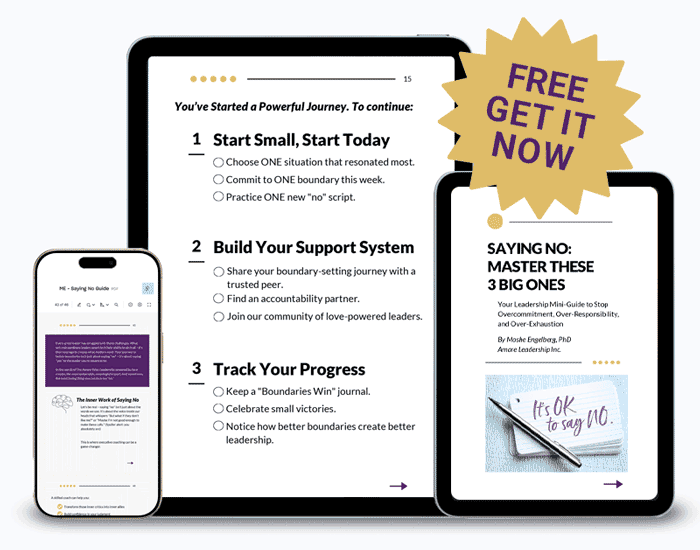The Lure of Big Money
“I know, but if we take their money we can scale so much faster!”
Brad was trying to persuade his partner Amy to accept a new funding offer from outside investors. Amy countered that while it would for sure help relieve pressure and foster growth, it might cost them their core values, their organizational culture, their vision, and their dream.
This is a tough dilemma many startups and entrepreneurs face. The lure of rapid growth and big money is very seductive, especially when you’ve put in so much time and effort, and much of your own money; and may be running out.
The decision calls for real clarity about your priorities, your non-negotiables, and your truth. When you lead the Amare Way, and commit to putting love to work as a central tenet, you have a set of principles and practices to guide you. It makes hard choices easier. [FYI, see CH 10 in my book, “Embracing money as a gift, not a god”].
- Are you clear about your organizational vision and values?
- What principles consistently guide your tough decisions?
- How do you stay true to your vision and values when temptation that may take you off-course comes knocking?
7 Amare Steps to Making Big Money Decisions
1. Be principled. Be clear and explicit about your guiding principles and non-negotiables, and go public with them. Let potential investors know too. Read how Jeff Bezos expressed Amazon’s commitment to long-term viability over short-term returns in his first letter to shareholders in 1997. And try on the 7 Amare Way principles, which include taking the long view.
2. Don’t be naive. Most investors clearly state their priorities and expectations, which can mean putting investor financial interests first. Don’t pretend they don’t mean it. Don’t expect they’ll change their ways because of something about your organization. Believe them.
3. Practice when cool. Take time to imagine big funding offers in the cool of the moment. Imagine both saying yes and saying no. Consider what evidence supports the positive and negative outcomes you envision. Go long-term in your visualizations. Get really clear.
4. Turn up the heat. First, have people you trust challenge your commitment by making hypothetical offers and proposing attractive “what if” scenarios. Then progress to low risk conversations with real investors where you can practice your principled decision-making.
5. Watch for slippage. Notice if slightly compromising your values then makes it easier to make bigger compromises. Notice when you hold firmly to a boundary. Commit to making every choice a conscious one.
6. Match your values, words, and actions. List your company’s top core values. Check if what you have said to your people about working with investors aligns with those values. Now check on which actions in front of you align with your values and your words. If there’s misalignment, take time to rethink it all before you act, and without self-judgment.
7. Go for it – without attachment. Aspire to big success, without grasping for it, without being attached to the desired outcome. Recognize that all you can do is to do your best, and that many factors (besides you!) affect the outcomes. This is a life-changing mindset espoused by many wisdom traditions; and a really challenging one to put into practice!
When you’re offered a lot of money to grow your business, it’s tempting to rationalize away any moral or ethical objections. The best leaders commit to applying a consistent set of principles to every big decision, which makes them more consistent, strategic, and on purpose.
Getting Clarity
Executive coaching is one way to get clear about your core values and guiding principles so when tough decisions need to be made, you’re ready. If that’s something you want to explore, get in touch.
Today’s Amare Wave Wednesday Quote
“Every time you make the hard, correct decision you become a bit more courageous, and every time you make the easy, wrong decision you become a bit more cowardly.”
―Ben Horowitz, co-founder of VC firm Andreessen Horowitz
You Might Also Like:
Balanced Decision-Making: Five Steps to “Makes Sense” and “Feels Right”
Money, Money, Money: 7 Amare Ways to Increase Your Wealth
The Path to Great Leadership Starts Here: Four Steps to Being True to Your Nature
How to Take a Stand and Stay Connected: Five Highly Effective Steps

